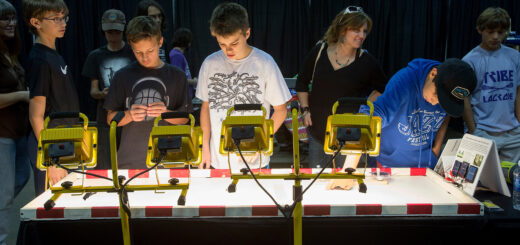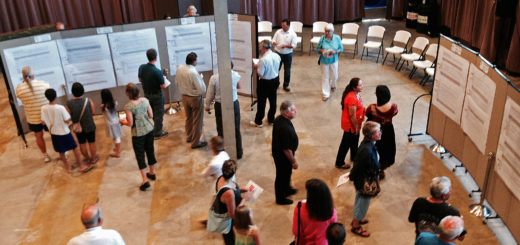Towards a more human-centered public education system
(Second of two columns)
In my previous column on how we can put the teacher-student relationship at the forefront of our public education system, Manson Elementary teacher Marcy Lindert made a compelling case for creating a culture that fosters trust and helps kids find their unique gifts and talents.
The punitive, factory-type mindset that our Legislature has adopted, with an emphasis on high-stakes testing and an assumption that more pressure and accountability will improve teaching and learning, kills creativity and ignores the reality that kids in our classrooms come with huge differences in life experience, parental support and economic circumstances.
Punishing people until they improve has never been an effective strategy. We need a more constructive mindset and approach, it seems to me.
Stanford psychologist Carol Dweck pioneered the field of growth mindset. Individuals fall into either what she calls a fixed mindset or a growth mindset. In a fixed mindset, one assumes that our character, intelligence and ability are static givens that cannot be changed. People with a fixed mindset spend their time worrying about being “right” and thereby confirming they are worthy. They’ll avoid difficult tasks because of a fear of failure.
Those with a growth mindset revel in challenges. They see mistakes or setbacks not as failure but as opportunities for growth. It turns out that individuals can learn to shift from a fixed to a growth mindset and that can be where teachers can have a tremendous influence on our kids.
Growth mindset is about a passion for learning and growing. That’s what an effective education system ought to be producing, rather than just kids who can excel (or not) on standardized tests.
One trend Lindert sees in the current system is how much emphasis is placed on pushing college classes down to lower and lower grade levels, which she argues is a huge mistake.
She pointed to the experience of her daughter, who is about to graduate from college and who she feels made the choice to not participate in important high school experiences in order to have time to do the extra coursework necessary for college credit. “I just worry about us all the way through taking away childhood from our children,” Lindert told me.
Similarly, using test scores as the only measure of success is a trap that lawmakers and a lot of parents are falling into. So is the notion that ever-increasing pressure on kids to perform well on those tests.
A more effective system will be based on the following, says Lindert:
· Appreciating that kids come from radically different backgrounds and life experiences and we need approaches that meet them where they are rather than where we think they should be.
· Fostering a constructive and supportive school culture based on trust. It’s important to hold people accountable, but we should begin with an emphasis on trust and confidence.
· Offering grace to others. When we respond with compassion and understanding we make better progress than with impatience and irritation, as Lindert put it.
· Understanding that “there’s so much that kids learn in other ways than through traditional academics,” in the words of Lindert. We need to bring play back into the classroom. So many of our kids lack experiences like going to the movies or a concert.
· Delivering a broad-based experience. If we only emphasize language arts, math and science many kids miss the chance to develop a natural ability into a strength and don’t see themselves as valuable contributors. We must hold the arts and history as equally valuable.
We shouldn’t wait for the Legislature to fix local education, in my view. We need to encourage and support our local school boards and administration in creating a constructive learning environment, regardless of what legislators do. Let’s encourage our schools to deemphasize test score and and focus on fostering growth mindset in a meaningful way.
So many educators I know are already doing these things. Let’s build on the strengths and capabilities already in our schools.



